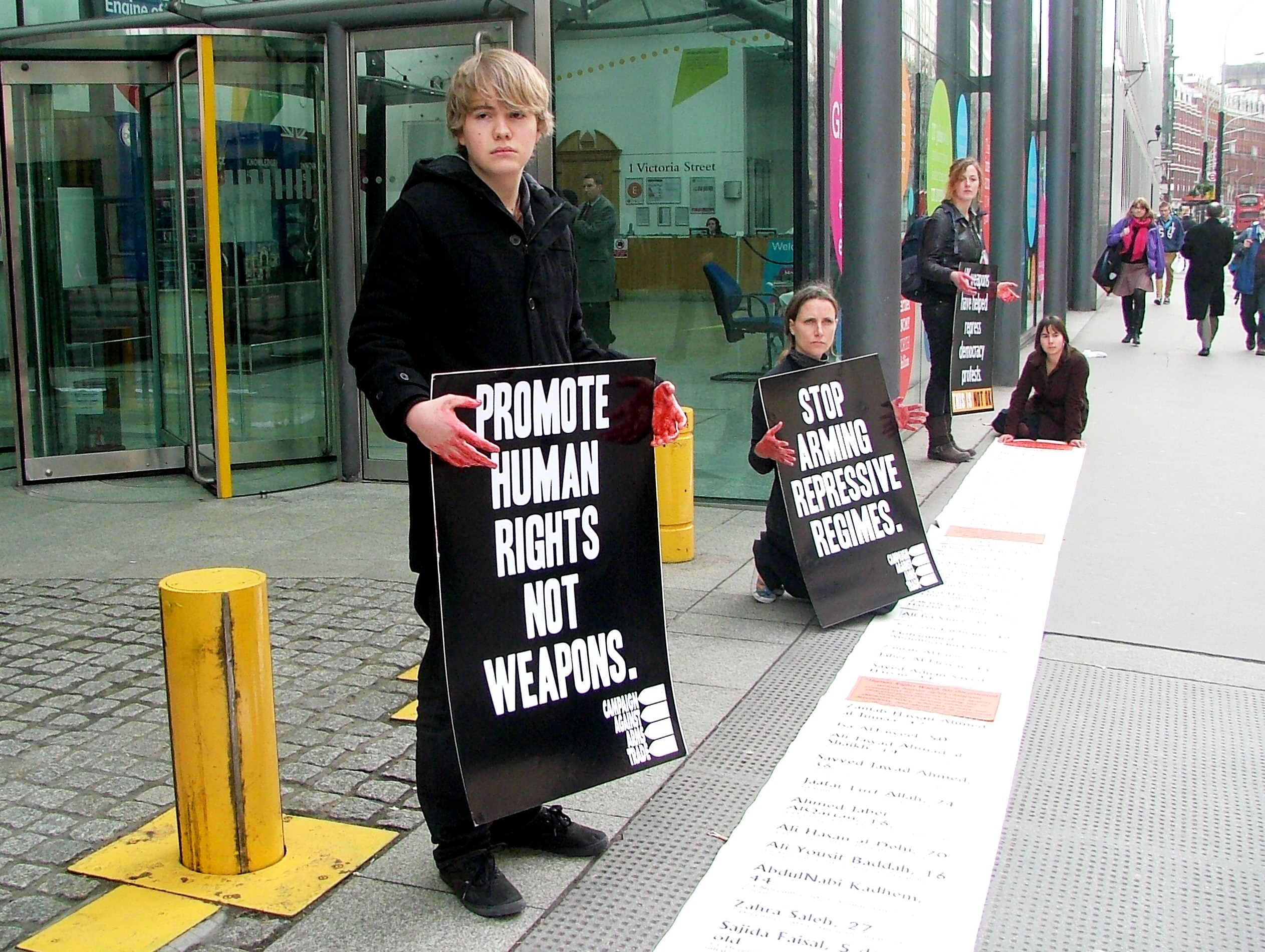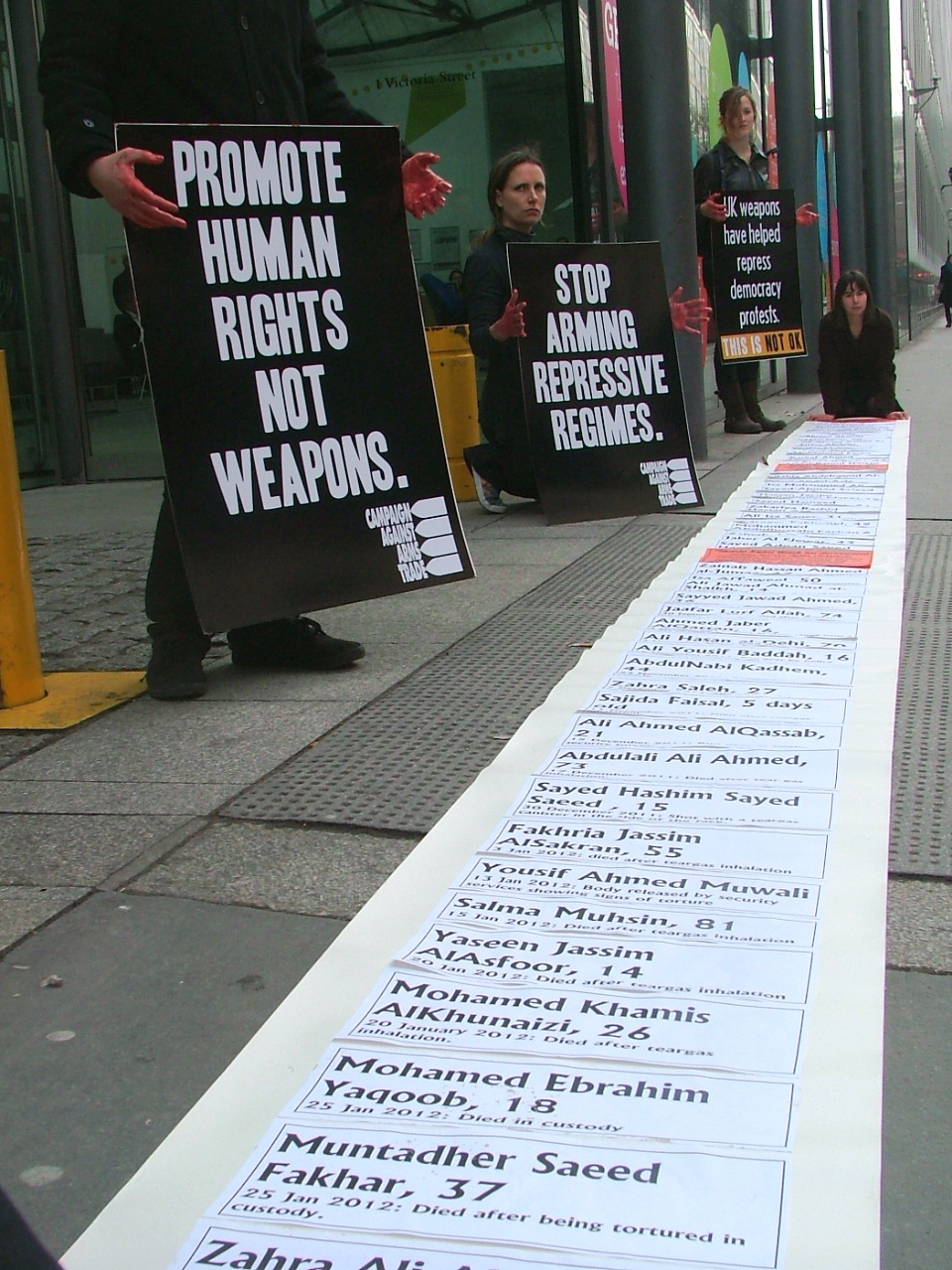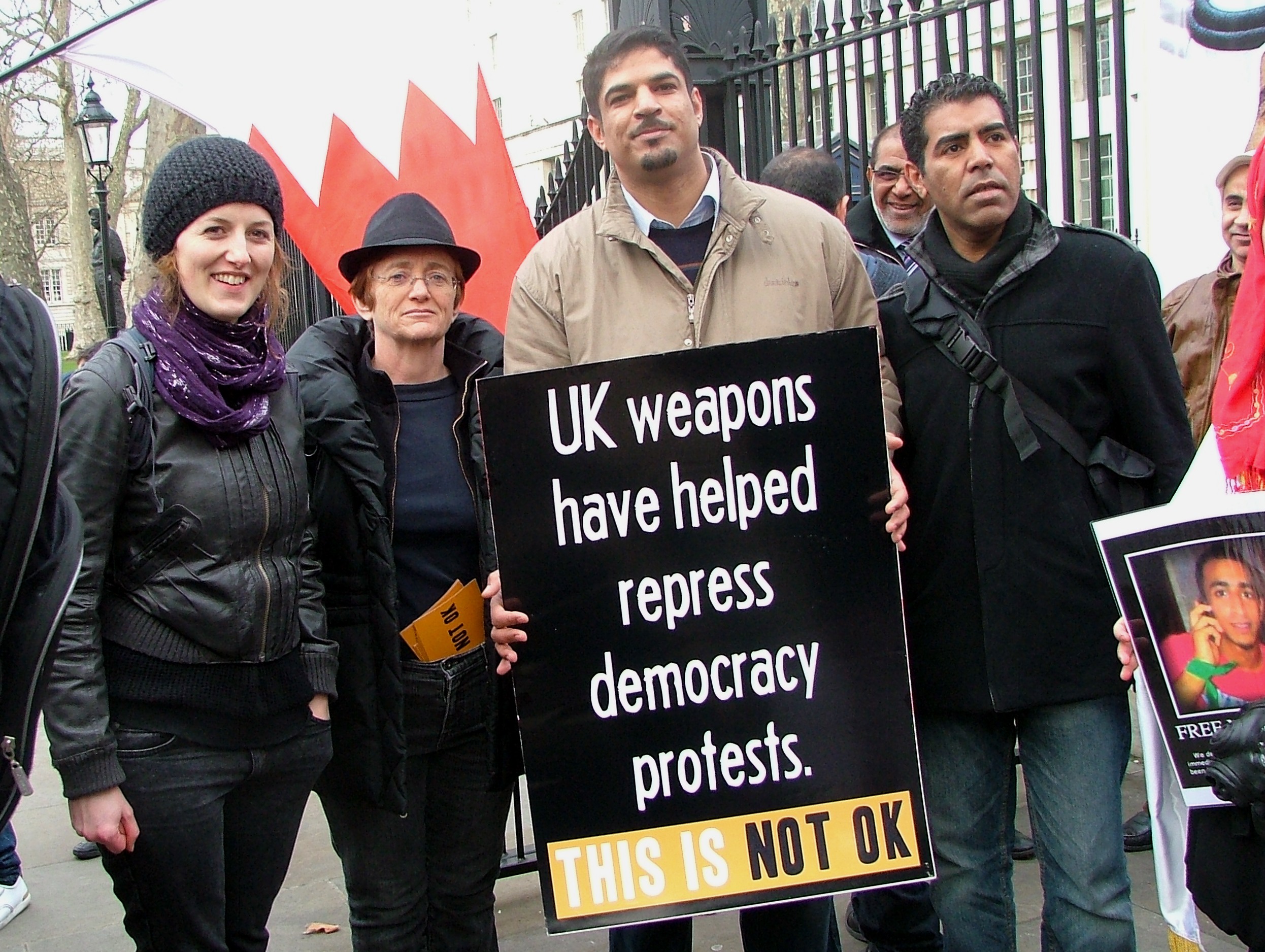CAAT protests continuing arms sales to Bahrain.
Since the New Year, at least ten people have been killed by security forces in Bahrain. Three were killed in custody. Others suffocated on tear gas, which has been fired into people’s homes where they can’t escape.
We have known of Bahrain’s horrific human rights abuses since a year ago when the crackdown on protest began, but the UK continues to arm the kingdom regardless. In Vince Cable’s words last week: “We do business with repressive governments and there’s no denying that.”
Victoria Street, one of the most soulless thoroughfares in London, is home to Vince Cable’s Department for Business, Innovation & Skills (BIS). BIS grants licences to export military equipment to Bahrain and houses the government’s arms promotion unit. This was a fitting setting for CAAT’s demonstration against UK arms exports to Bahrain on 14 February – the first anniversary of the Bahrain uprising.
Protesters, dressed in black and displaying bloodied hands, held placards condemning UK arms sales. Along the pavement in front of BIS we unrolled a list of names of those known to have been killed in the crackdown. The cold grey day reflected our sombre mood as we handed out leaflets to passers-by and to people entering BIS.
We went on to join Bahraini opposition activists demonstrating outside Downing Street, and met a young man who had lost an eye in the protests in Bahrain. We were told police had ordered surgeons not to operate, so it could not be saved. They welcomed us and were happy to hold our placards in support of an end to UK arms sales, not just to Bahrain but to all repressive regimes.
Background
14 February 2011 was the day the Arab Spring bloomed in Bahrain. On that day activists, inspired by democracy movements in Tunisia and Egypt, occupied a roundabout in the capital Manama and demanded political and economic reforms. They met with brutal repression – guns, tear gas, arrests, imprisonment, torture. In March, Saudi Arabia sent troops and armoured vehicles in support of the Bahrain government.
The routine use of firearms and tear gas resulted in at least 35 deaths between February and June and others since. Many people have been arrested, imprisoned and subject to unfair trials.



